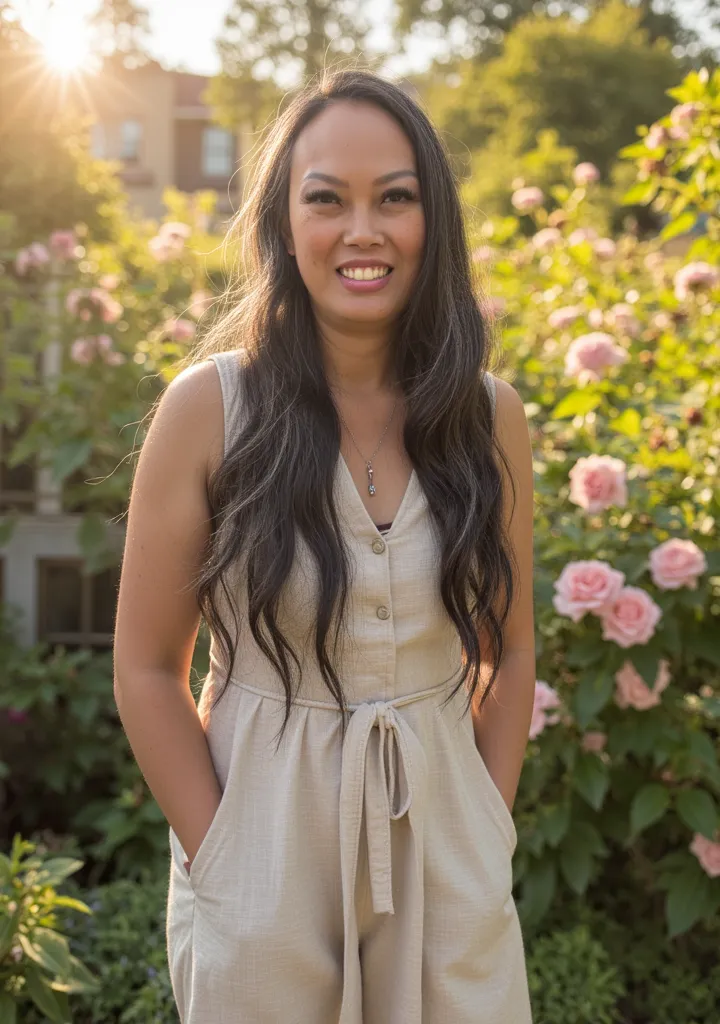I’M Michelle Lach

Certified Mindfulness Coach & EFT Tapping Practitioner
Helping You Find & Forge Your Own Path
Personal Life Coaching
Reconnect with your truth, clear emotional clutter, and move forward with confidence.
Using mindfulness tools and EFT tapping, I guide women through the inner work of healing people-pleasing, perfectionism, and self-doubt so they can create a more peaceful, purpose-led life.
Career Building
Support for soul-led women building values-aligned businesses.
Together, we clear mindset blocks and inner resistance around visibility, self-worth, and sales—so you can show up confidently, magnetize aligned clients, and build a business that honors your rhythm and values.
Helping You Achieve Success
Unlock Deeper Self-Awareness.
Step into Alignment with Who You’re Becoming.
Through gentle mindset coaching and somatic EFT practices, I help women release inner blocks, reconnect with their inner wisdom, and take aligned steps forward. Whether you’re navigating burnout, life transitions, or craving a more fulfilling path—you don’t have to do it alone.
Release emotional baggage and reconnect with your purpose
Shift limiting beliefs stored in the body using EFT tapping
Feel confident in your voice, message, and next steps
Navigate transitions with clarity, calm, and confidence

Goal Setting
Get clear on what matters most to you. Together, we’ll identify meaningful goals and create a supportive action plan that aligns with your values and lifestyle.

Relationship Coaching
Heal patterns that hold you back and create stronger, more authentic connections—with others and with yourself. This is inner work that transforms how you relate and receive

Stress Management
Release stress and emotional overwhelm using EFT tapping, breathwork, and mindfulness. Learn how to regulate your nervous system and feel more grounded in everyday life.

Career Advice
Whether you're exploring a new path or wanting to bring more purpose into your work, we’ll clear the inner resistance so you can take aligned, confident steps forward.
What Is Life Coaching?
Who is Coaching For?
Life coaching is a collaborative, forward-focused partnership that helps you reconnect with your values, clear emotional and mental roadblocks, and take aligned steps toward the life you deeply desire.
Coaching isn’t about fixing you—it’s about holding space for your growth, healing, and clarity as you navigate life transitions, burnout, self-doubt, or simply a desire for more meaning and peace.
You’re navigating a major life or career transition
You feel stuck in old patterns or emotional overwhelm
You’ve done “the work” but still feel disconnected from your purpose
You want clarity around your next steps—without the hustle
You’re craving aligned support rooted in mindfulness, not pressure
About Me
Hi, I’m Michelle Lach — a Certified Mindfulness Coach and EFT Tapping Practitioner. I help women clear emotional, energetic, and money mindset blocks so they can lead lives rooted in peace, purpose, and personal power.
After navigating my own journey through scarcity, motherhood, and burnout, I became passionate about supporting other soul-led women who are ready to reclaim their time, energy, and abundance — without the hustle.
My approach blends somatic tools like EFT tapping, mindfulness, and gentle nervous system regulation to create sustainable transformation from the inside out.
Because healing isn’t just for you — it creates ripple effects across your lineage.
Testimonials
“Before coaching with Michelle, I was constantly second-guessing myself and undercharging. The EFT sessions helped me clear my fear of being visible. I now feel more confident sharing my offers and honoring my worth. It’s been life-changing..”
“I didn’t expect to cry during a Zoom session, but Michelle made me feel safe enough to release years of self-doubt. I’ve since had more clarity and emotional peace than I’ve had in years.”
“I had invested in other programs but still felt stuck. Michelle helped me clear what was holding me back. Within two months, I signed two clients and, more importantly, believed in myself again.”
Online Coaching Resources

Regulate your Nervous System
A gentle guide to reconnecting with yourself.
This digital eBook offers mindfulness prompts, grounding rituals, and emotional wellness tools to help you create moments of calm in your busy day.

The Essentials of Goal Setting
Learn how to set aligned, heart-centered goals that feel good to pursue. This guide includes journal prompts and mindset tools to help you take inspired action—without pressure or burnout.

3 Week Career Workshop
This self-paced workshop supports you in clarifying your career vision, releasing internal resistance, and stepping forward with confidence. Perfect for soul-led women seeking meaningful work.
Come Back to Center. Clarify Your Next Step. Reclaim Your Energy.
You’re not behind. You’re not broken. You’re just ready to shift.
If you’ve been holding it all together but feeling tired, stuck, or unsure what’s next — this is your space to pause, reconnect with your truth, and receive intuitive support.
Through gentle coaching, EFT tapping, and somatic practices, I’ll help you release resistance and come back into alignment with who you're becoming.
You don’t need a plan. You just need a safe space to begin.
Don’t Wait Any Longer. Start Forging Your Own Path Today!
PRIVACY POLICY | TERMS OF USE | DISCLAIMER | REFUND POLICY
Coaching services provided are for educational and informational purposes only. Individual results may vary. We do not guarantee outcomes or provide legal, financial, or mental health advice. All trademarks mentioned are property of their respective owners. This site is not affiliated with or endorsed by Facebook, Google, or any social media platform.
Copyright ©2020 Lach Coaching LLC. All rights reserved.








